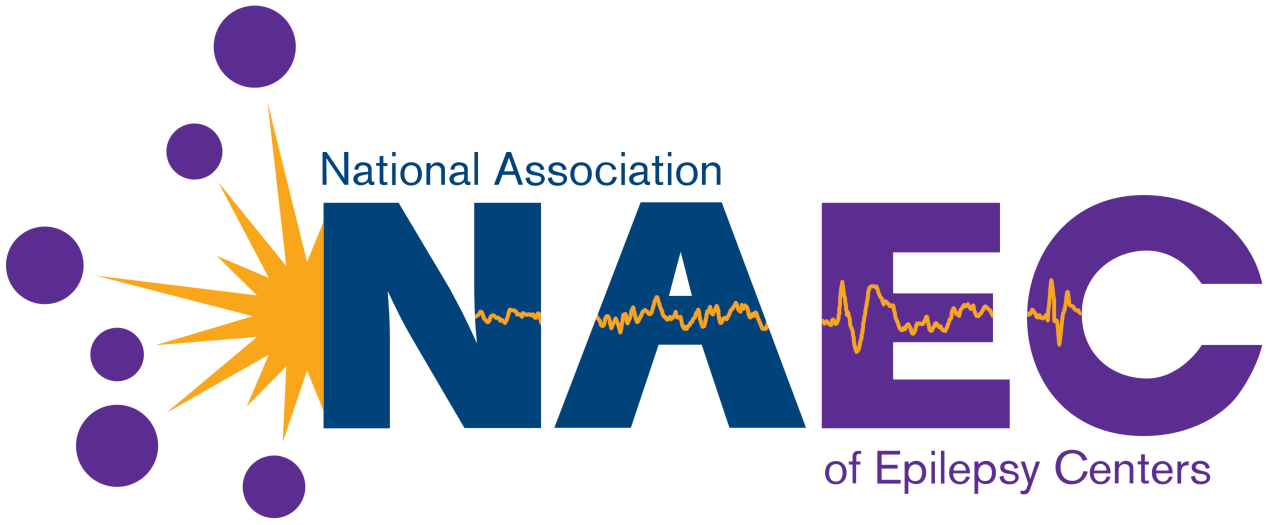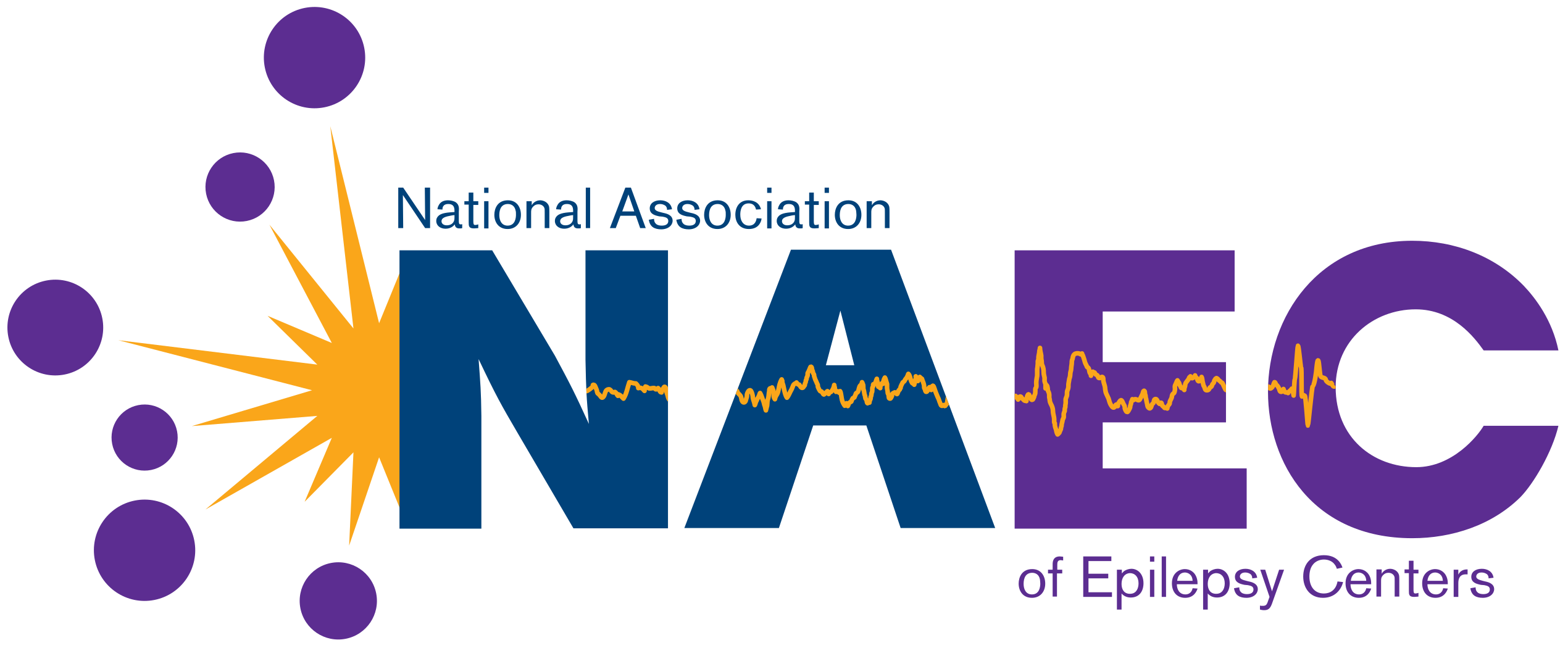What are Epilepsy Centers
and How can they Help?
What are Epilepsy Centers
and How can they Help?
There’s hope for people whose seizures are not well-controlled or who have side effects from medications. The expert, specialized care provided by epilepsy centers can help people with seizures and epilepsy reach the goal of No Seizures, No Side Effects.
Are you:
- Continuing to have seizures despite treatment for more than one year?
- Continuing to have seizures despite treatment with two different medications?
- Experiencing unacceptable side effects?
- Seeking a higher-level of epilepsy care?
- Interested in learning about all potential options to treat or cure your seizures or epilepsy?
If you answer yes to one or more of these questions, you should seek care at an epilepsy center.
Epilepsy centers provide a comprehensive team approach to the diagnosis and treatment of seizures and epilepsy, which includes many different types of doctors and other providers who are experts in treating epilepsy. A patient-oriented team will typically include epileptologists (neurologists with expertise in treating seizures), neurosurgeons, neuropsychologists, nurse specialists, EEG technologists, social workers, and others with training and experience in epilepsy. All work together to provide the highest-quality and most complex care.
Why a Specialized Epilepsy Center?
Primary Care
Typically, epilepsy care starts with an evaluation at an emergency room or a primary care physician’s office. This is considered the first level of epilepsy care. For many patients the first anti-epileptic medication tried will effectively control seizures without causing side-effects. If seizure control is obtained, no further specialized epilepsy evaluation may be needed.
Neurologist
If seizures persist and cannot be brought under control by a primary care provider within three months, further intervention is appropriate with a general neurologist. A neurologist is a physician that specializes in diseases of the brain and central nervous system. Once seizures are under control, care can be transferred back to the primary care provider.
Epileptologists and Specialized Epilepsy Centers
Patients who are not responding to standard medical therapy who have either persistent seizures or side effects should be referred to an epilepsy specialist, known as an epileptologist at a specialized center. Epilepsy centers provide a comprehensive team approach to the diagnosis and treatment of epilepsy. The goal is to control or at least reduce the frequency of seizures and side effects for patients.
If your seizures have not been brought under control after three months of care by a primary care provider (family physician, pediatrician), further neurologic intervention by a neurologist, or an epilepsy center if locally available, is appropriate.
If you are seeing a general neurologist, and your seizures have not been brought under control after 12 months, you should request a referral to a specialized epilepsy center with an epileptologist.
Epilepsy centers can help with:
- Advanced testing to confirm epilepsy diagnosis or find another cause for symptoms.
- A team approach to coexisting medical conditions including depression, learning disabilities, anxiety, and more.
- Non-medication therapies including epilepsy surgery, the ketogenic diet, and neurostimulators.
- Seizures secondary to genetic disorders or other rare epilepsies.
- Education about effects of epilepsy and seizure medications on pregnancy and the developing baby.
- Information about clinical trials of new experimental drugs or devices for seizures.
How does NAEC accredit epilepsy centers?
NAEC develops standards for epilepsy care through the publication of epilepsy center guidelines and uses these guidelines to establish criteria for level 3 and level 4 epilepsy center accreditation. Over time, NAEC plans to incorporate many of the recommendations in the 2023 Guidelines for Specialized Epilepsy Centers: Report of the National Association of Epilepsy Centers Guideline Panel in its accreditation program. The NAEC Board oversees the accreditation process. The NAEC Accreditation Committee makes final determinations on accreditation decisions.
NAEC defines four levels of epilepsy care and accredits epilepsy centers that provide level 3 and 4 care:
- Level 1 epilepsy care typically occurs at an emergency room or a primary care physician’s office with an epilepsy evaluation.
- Level 2 epilepsy care involves a consultation with a general neurologist. This consultation may occur at a specialized epilepsy center.
- Levels 3 and 4 care takes place at specialized epilepsy centers.
All epilepsy centers listed in NAEC’s directory have completed the NAEC accreditation process for the current year or are listed as Applicants if they have yet to complete the accreditation process. To be accredited, centers have to meet more than 40 criteria demonstrating that they have a multi-disciplinary set of clinicians with special training in epilepsy and provide comprehensive services to their patients. Learn more about NAEC’s accreditation program here.
NAEC also recognizes ABRET LAB-LTM accreditation of epilepsy monitoring units. ABRET’s Lab Accreditation process evaluates technical standards, the quality of the laboratory’s output, unit policies and management.
View a complete list of NAEC accredited centers with ABRET LAB-LTM accreditation.
What Differentiates Level 3 and 4 Centers?
Level 3 Centers
Level 3 centers provide the basic range of neurodiagnostic evaluations and medical, neuropsychological, and psychosocial services needed to diagnose and treat patients with refractory epilepsy. Some level 3 centers offer certain surgical procedures, though NAEC does not assess centers based on these services.
Level 4 Centers
Level 4 centers provide more complex forms of intensive neurodiagnostic evaluation and monitoring, as well as more extensive medical, neuropsychological, and psychosocial treatment. Level 4 centers also offer a broad range of surgical procedures for epilepsy, including implantation of neuromodulatory devices.

